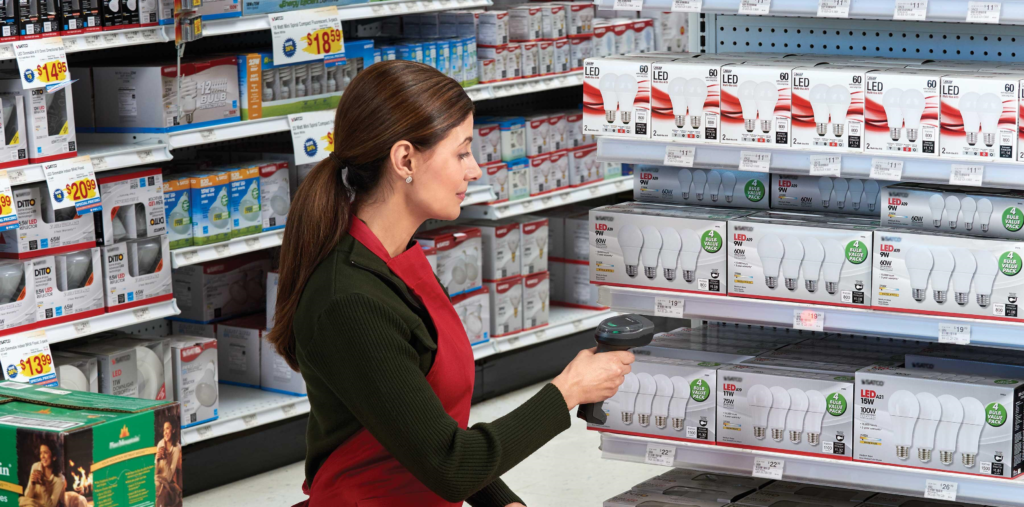27
Sep
The Ultimate Guide to Barcode Scanners: What You Need to Know

In today’s fast-paced business environment, efficiency and accuracy are paramount, and barcode scanners have become indispensable tools across various industries. Whether you’re managing inventory, processing sales, or tracking assets, barcode scanners streamline operations, reduce human error, and improve productivity. In this guide, we’ll explore everything you need to know about barcode scanners, from how they work to the different types available on the market.
What Is a Barcode Scanner?
A barcode scanner is an electronic device designed to read printed barcodes and convert them into digital data. The scanner captures the barcode’s information, which is then sent to a computer system for processing. This process happens in seconds, making it a quick and efficient way to gather product data or track items.
How Does a Barcode Scanner Work?
Barcode scanners use a light source, typically a laser or LED, to illuminate the barcode. The scanner then detects the reflected light and interprets the pattern of black and white bars or spaces into readable data. This data is transmitted to a computer or point-of-sale (POS) system for further action, such as updating inventory, recording a sale, or tracking shipments.
Key Components of a Barcode Scanner:
- Light Source: Illuminates the barcode for reading.
- Sensor: Captures the reflected light and converts it into an electrical signal.
- Decoder: Translates the electrical signal into digital information that can be understood by the computer system.
- Interface: Transmits the decoded data to a computer system via USB, Bluetooth, or other wireless connections.
1. Laser Barcode Scanners
Laser barcode scanners use laser beams to scan barcodes and are known for their accuracy and range. These scanners are suitable for reading traditional 1D barcodes, making them ideal for retail, logistics, and inventory management. They are typically more expensive than their counterparts but offer greater precision.
Advantages:
- Fast scanning speed
- Can scan barcodes from longer distances
- Reliable and accurate for 1D barcodes
2. Imager Barcode Scanners (2D Scanners)
Imager scanners, also known as 2D barcode scanners, use cameras to capture images of the barcode. They can read both 1D and 2D barcodes, making them more versatile than laser scanners. 2D scanners are commonly used in industries such as healthcare, manufacturing, and warehousing.
Advantages:
- Can read damaged or poorly printed barcodes
- Capable of scanning barcodes on mobile screens
- Versatile: reads both 1D and 2D barcodes
3. CCD Barcode Scanners
Charged Coupled Device (CCD) scanners are durable and reliable, using an array of light sensors to scan barcodes. They are primarily used for short-range scanning and are often found in retail environments where speed is essential.
Advantages:
- Durable and long-lasting
- Quick scanning for close-range applications
- Cost-effective compared to laser scanners
4. Omnidirectional Barcode Scanners
Omnidirectional scanners use multiple scanning lines to read barcodes from various angles. These scanners are commonly used in retail settings where products are passed quickly through checkout. They can scan barcodes from any orientation, reducing the need for precise alignment.
Advantages:
- Quick and easy to use for high-volume environments
- Reads barcodes from any angle
- Ideal for point-of-sale systems
5. Mobile Barcode Scanners
Mobile barcode scanners are portable devices that combine scanning capabilities with mobile computing. They are commonly used in industries like logistics, delivery services, and fieldwork, where employees need to scan items on the go.
Advantages:
- Mobility for on-the-go scanning
- Often rugged and durable for tough environments
- Can include features like GPS, Wi-Fi, and Bluetooth connectivity
Barcode Scanner Applications
Barcode scanners are used across various industries, including:
1. Retail
Barcode scanners are essential in retail settings for managing product inventory, processing sales, and improving the overall customer experience. Scanners like the Honeywell Voyager XP 1472g and Zebra DS2208 are popular choices in retail for their speed and reliability.
2. Logistics & Warehousing
In logistics and warehousing, barcode scanners streamline the process of tracking shipments, managing inventory, and ensuring accurate delivery. Rugged scanners such as the Honeywell Granit XP 1991iXR and Zebra DS3600-XR are designed for these demanding environments.
3. Healthcare
In healthcare, barcode scanners are used to track patient information, manage medication dispensing, and streamline inventory in hospitals and pharmacies. The Honeywell Xenon 1900 is a popular choice for healthcare settings due to its precise scanning capabilities and disinfectant-ready housing.
4. Manufacturing
Manufacturing industries use barcode scanners to track production processes, manage inventory, and improve efficiency on the assembly line. Scanners like the Honeywell Granit 1920i are designed to withstand harsh conditions and read direct part marks (DPM) on industrial components.
5. Hospitality
In the hospitality sector, barcode scanners are used for ticketing, inventory management, and event check-ins. Portable scanners, like the Elo M50 Mobile Computer, provide flexibility and speed in high-volume settings.
Choosing the Right Barcode Scanner for Your Business
When selecting a barcode scanner for your business, consider the following factors:
1. Type of Barcode:
Determine whether you’ll be scanning 1D or 2D barcodes. If your business deals with QR codes or mobile barcodes, you’ll need a 2D scanner.
2. Environment:
Consider the environment where the scanner will be used. For retail environments, lightweight and omnidirectional scanners are ideal. For industrial settings, rugged scanners like the Honeywell Granit 1920i are better suited.
3. Connectivity:
Decide whether you need wired or wireless connectivity. Wireless barcode scanners offer more flexibility, especially in large warehouses, while wired scanners are reliable for fixed retail POS systems.
4. Durability:
If the scanner will be used in harsh environments, choose a rugged model designed to withstand dust, water, and drops, such as the Zebra DS3600.
5. Scanning Distance:
For retail checkouts, short-range scanners work well, but if you need to scan barcodes from a distance, opt for long-range laser scanners or rugged industrial models.
Top Barcode Scanner Brands
When it comes to barcode scanners, a few brands dominate the market for their quality and innovation:
- Honeywell: Known for rugged, durable scanners like the Granit series, which are perfect for industrial and warehouse use.
- Zebra: Offers a wide range of scanners, from entry-level to rugged models, with advanced features like Zebra VisibilityIQ™ to help manage device performance.
- Datalogic: Specializes in laser and imaging technology, providing high-performance scanning solutions.
- Elo: Provides mobile and desktop barcode scanners with integrated systems for retail and hospitality.
Final Thoughts
Barcode scanners are an essential tool for any business looking to improve accuracy, speed, and efficiency. Whether you operate in retail, logistics, healthcare, or manufacturing, choosing the right barcode scanner can significantly streamline your operations. Be sure to assess your business’s needs, the environment, and the type of barcodes you’ll be scanning to make the best decision for your setup.
With innovations in scanning technology continuously evolving, it’s an exciting time to explore what barcode scanners can do for your business.
